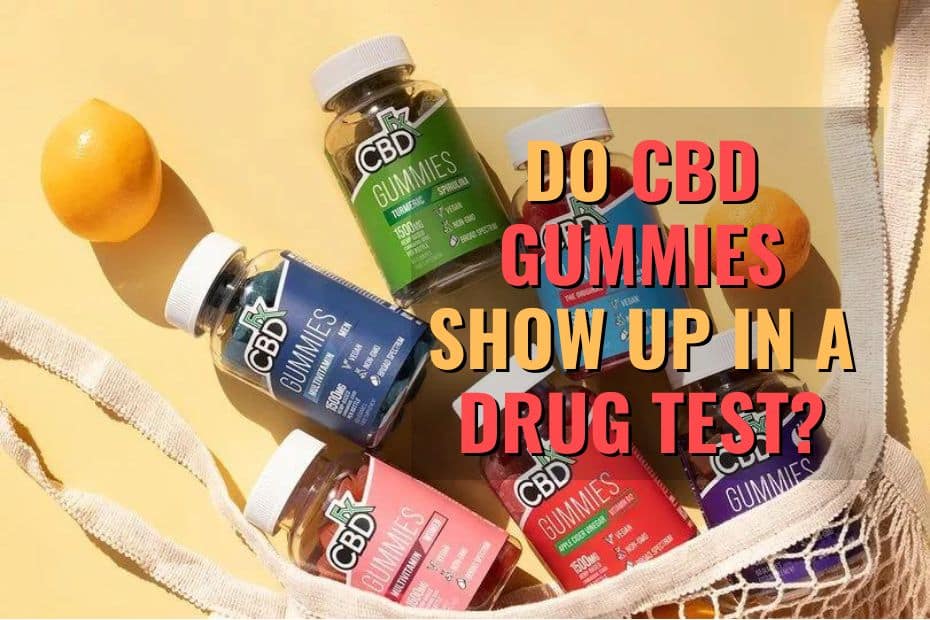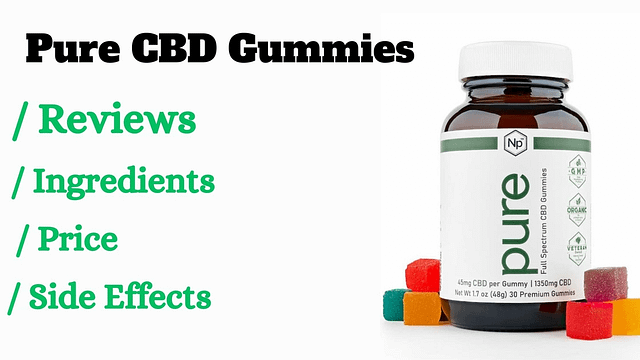In recent years, the popularity of various Cannabidiol products has surged, and among them, CBD gummies have gained significant attention. These gummies provide a convenient and enjoyable way to incorporate cannabidiol into one's wellness routine. However, with the growing interest in Cannabidiol comes a natural concern—how does the consumption of CBD gummies affect drug test results? This article aims to provide a clear and informative guide to help you understand the relationship between CBD gummies and drug tests.
Table of Contents
- 1 What is CBD and Drug Tests?
- 2 The Risk of THC in CBD Gummies
- 3 Navigating Legal Limits
- 4 Factors Affecting THC Levels
- 5 Isolate vs. Full-Spectrum vs. Broad-Spectrum CBD Gummies
- 6 Exploring Cannabinoid Extracts
- 7 Assessing THC Exposure
- 8 Mitigating Risks and Ensuring THC-Free CBD Gummies
- 9 Making Informed Choices
- 10 Reading Labels and Descriptions
- 11 False Positives and Cross-Contamination
- 12 Advice for Cannabidiol Consumers
- 13 Conclusion
- 14 Frequently Asked Questions
- 15 1. Will CBD gummies cause me to fail a drug test?
- 16 2. Which type of Cannabidiol gummies is safest for drug tests?
- 17 3. Do full-spectrum CBD gummies always contain THC?
- 18 4. Can cross-contamination cause positive drug test results?
- 19 5. How can I ensure the THC content of CBD gummies I buy?
- 20 6. Is CBD use allowed during employment drug tests?
- 21 7. Are there alternatives to CBD gummies for those concerned about drug tests?
- 22 8. Can I experience psychoactive effects from Cannabidiol gummies?
- 23 9. Can I still benefit from the entourage effect with THC-free gummies?
- 24 10. What should I do if I test positive for THC due to CBD gummies?
What is CBD and Drug Tests?

To comprehend the potential impact of Cannabidiol gummies on drug tests, it's essential to understand the fundamental properties of CBD and the testing methods employed. Cannabidiol, a non-psychoactive compound derived from the hemp plant, is distinct from tetrahydrocannabinol (THC), the psychoactive compound responsible for the “high” associated with marijuana.
Drug tests typically aim to detect the presence of THC or its metabolites in the body. Various types of tests, including urine, blood, hair, and saliva tests, are used to achieve this goal. While CBD is not the primary focus of these tests, the presence of even trace amounts of THC in Cannabidiol products can raise concerns.
The Risk of THC in CBD Gummies

Federal regulations stipulate that CBD products must contain no more than 0.3% THC to be considered legal. This low THC threshold ensures that Cannabidiol products won't produce intoxicating effects. However, this also means that there is a potential for trace amounts of THC to be present in CBD gummies, which could trigger positive drug test results.
Factors Affecting THC Levels
The level of THC in Cannabidiol products can vary based on factors such as sourcing, manufacturing processes, and rigorous testing. Therefore, it's crucial to select reputable brands that provide transparent third-party lab testing results to ensure you're getting a product that aligns with legal THC limits.
Isolate vs. Full-Spectrum vs. Broad-Spectrum CBD Gummies
Exploring Cannabinoid Extracts
When choosing Cannabidiol gummies, it's important to consider the type of CBD extract used. There are three main types: Cannabidiol isolate, full-spectrum CBD, and broad-spectrum Cannabidiol. Here's a comparison:
| Aspect | Isolate CBD Gummies | Full-Spectrum CBD Gummies | Broad-Spectrum CBD Gummies |
| CBD Content | Pure Cannabidiol (No THC or | CBD along with a range | CBD with other cannabinoids |
| other cannabinoids) | of cannabinoids including | except THC | |
| THC Content | Typically 0% THC | Up to 0.3% THC | 0% THC |
| Cannabinoid Spectrum | Only Cannabidiol | CBD and various | CBD and other cannabinoids |
| cannabinoids | except THC | ||
| Entourage Effect | Limited due to | Enhanced due to presence | Enhanced without THC |
| absence of other | of multiple cannabinoids | ||
| cannabinoids | including trace THC | ||
| Psychoactive Effects | Non-Psychoactive | May have mild | Non-Psychoactive |
| psychoactive effects due | |||
| to trace THC | |||
| Drug Test Risk | Very Low | Moderate to High | Low |
| (Depends on THC levels) | |||
| Suitable for Drug | Generally considered | Risk of positive results | Suitable for drug tests if |
| Tests | safe for drug tests | in some cases | THC-free |
Assessing THC Exposure
For those concerned about drug tests, Cannabidiol isolate and broad-spectrum CBD gummies might be preferable options, as they have lower chances of containing detectable THC levels. Full-spectrum CBD gummies, while legally required to contain less than 0.3% THC, still carry a risk of triggering positive drug test results due to the presence of trace THC.
Mitigating Risks and Ensuring THC-Free CBD Gummies

Making Informed Choices
To minimize the risk of THC exposure and positive drug test results, it's essential to take several precautions. First, research and choose reputable Cannabidiol brands that provide comprehensive lab reports. These reports should confirm the CBD content and the absence of THC above the legal limit.
Reading Labels and Descriptions
Reading labels and product descriptions is another critical step. Reputable brands clearly state the THC content in their products, allowing consumers to make informed decisions. If drug tests are a significant concern, consider opting for Cannabidiol isolate gummies, as they contain only CBD with no other cannabinoids or THC.
False Positives and Cross-Contamination
False positives in drug tests occur when a substance other than the targeted compound triggers a positive result. While it's uncommon for Cannabidiol to cause false positives, cross-contamination is a potential factor. Some facilities process both CBD and THC products, increasing the risk of trace THC unintentionally ending up in Cannabidiol products. This underscores the importance of choosing brands that adhere to stringent manufacturing processes and maintain separation between CBD and THC production.
Advice for Cannabidiol Consumers
For individuals who are subject to regular drug tests but wish to incorporate CBD gummies into their routine, there are strategies to consider. Opting for Cannabidiol isolate or broad-spectrum products minimizes the risk of THC exposure. Additionally, consider communicating openly with employers or relevant authorities about your CBD use. Educating them about the differences between Cannabidiol and THC can help prevent misunderstandings.
Conclusion
As the popularity of CBD gummies continues to rise, understanding their potential impact on drug test results is crucial. By recognizing the distinction between Cannabidiol and THC, choosing reputable brands, and staying informed about product contents, consumers can enjoy the benefits of CBD gummies without unnecessary concerns about drug tests. It's all about making informed decisions, prioritizing quality, and fostering open communication in the evolving landscape of Cannabidiol consumption.
Frequently Asked Questions
1. Will CBD gummies cause me to fail a drug test?
Cannabidiol gummies that adhere to legal THC limits (0.3% or lower) are unlikely to cause you to fail a drug test. However, there's a small risk of trace THC triggering a positive result.
2. Which type of Cannabidiol gummies is safest for drug tests?
CBD isolate gummies and broad-spectrum Cannabidiol gummies, which contain no or negligible THC, are generally safer options for individuals concerned about drug tests.
3. Do full-spectrum CBD gummies always contain THC?
Full-spectrum CBD gummies can legally contain up to 0.3% THC. This amount is unlikely to cause intoxication but is detectable in drug tests.
4. Can cross-contamination cause positive drug test results?
Cross-contamination in Cannabidiol manufacturing facilities is possible, but reputable brands take measures to prevent it. Choosing trustworthy brands reduces this risk.
5. How can I ensure the THC content of CBD gummies I buy?
Reputable brands provide third-party lab reports confirming the THC content of their products. Read labels and research before purchasing.
6. Is CBD use allowed during employment drug tests?
The policies regarding Cannabidiol use during employment drug tests vary. Communicate with your employer about your CBD use to avoid misunderstandings.
7. Are there alternatives to CBD gummies for those concerned about drug tests?
Yes, alternatives include Cannabidiol isolates, which contain no THC, and broad-spectrum products with THC removed.
8. Can I experience psychoactive effects from Cannabidiol gummies?
CBD isolate and broad-spectrum gummies are non-psychoactive. Full-spectrum gummies have mild psychoactive effects due to trace THC.
9. Can I still benefit from the entourage effect with THC-free gummies?
While THC contributes to the entourage effect, other cannabinoids present in broad-spectrum gummies can still offer potential benefits.
10. What should I do if I test positive for THC due to CBD gummies?
If you believe the positive result is due to Cannabidiol gummies, communicate openly with relevant parties and provide evidence of using legal CBD products.

MS, RD
Laura Reynolds is a registered dietitian (RD) with extensive experience in counseling individuals on adopting healthy dietary habits. Her well-researched and evidence-based reviews reflect her commitment to promoting overall wellness through proper nutrition.











+ There are no comments
Add yours